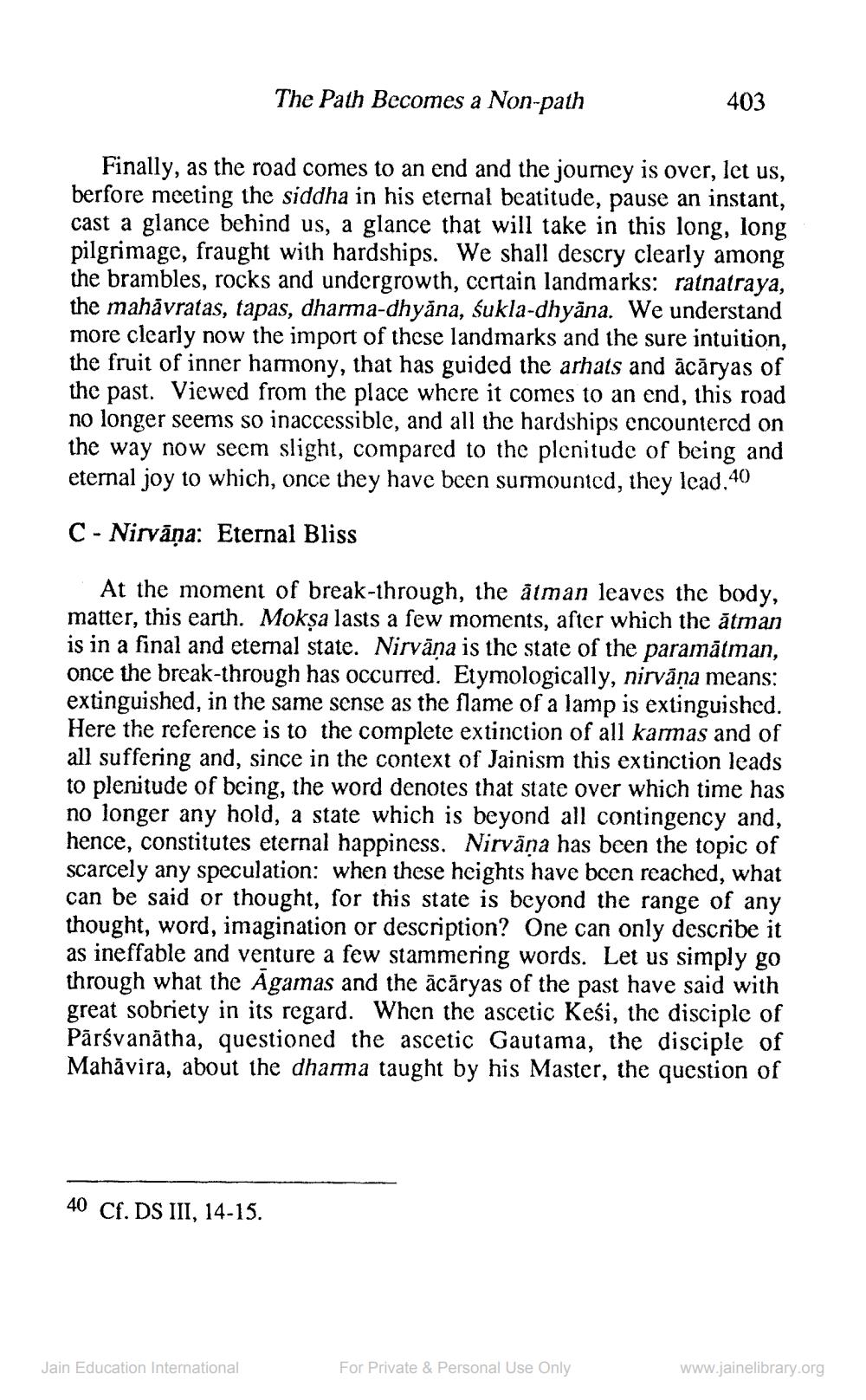________________
The Path Becomes a Non-path
403
Finally, as the road comes to an end and the journey is over, let us, berfore meeting the siddha in his eternal beatitude, pause an instant, cast a glance behind us, a glance that will take in this long, long pilgrimage, fraught with hardships. We shall descry clearly among the brambles, rocks and undergrowth, certain landmarks: ratnatraya, the mahávratas, tapas, dharma-dhyāna, śukla-dhyāna. We understand more clearly now the import of these landmarks and the sure intuition, the fruit of inner harmony, that has guided the arhats and ācāryas of the past. Viewed from the place where it comes to an end, this road no longer seems so inaccessible, and all the hardships encountered on the way now seem slight, compared to the plenitude of being and eternal joy to which, once they have been surmounted, they lead. 40
C - Nirvana: Eternal Bliss
At the moment of break-through, the ātman leaves the body, matter, this earth. Moksa lasts a few moments, after which the atman is in a final and eternal state. Nirvana is the state of the paramātman, once the break-through has occurred. Etymologically, nirvana means: extinguished, in the same sense as the flame of a lamp is extinguished. Here the reference is to the complete extinction of all karmas and of all suffering and, since in the context of Jainism this extinction leads to plenitude of being, the word denotes that state over which time has no longer any hold, a state which is beyond all contingency and, hence, constitutes eternal happiness. Nirvana has been the topic of scarcely any speculation: when these heights have been reached, what can be said or thought, for this state is beyond the range of any thought, word, imagination or description? One can only describe it as ineffable and venture a few stammering words. Let us simply go through what the Agamas and the ācāryas of the past have said with great sobriety in its regard. When the ascetic Keśi, the disciple of Pārsvanātha, questioned the ascetic Gautama, the disciple of Mahăvira, about the dhamma taught by his Master, the question of
40 Cf. DS III, 14-15.
Jain Education International
For Private & Personal Use Only
www.jainelibrary.org




